
Press Center
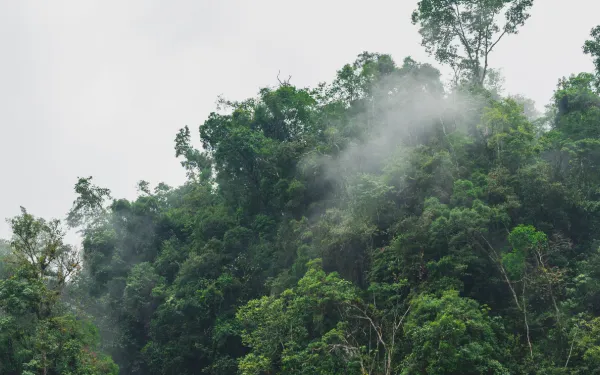
Belo Sun: at the worst moment of the pandemic, Brazilian government authorizes in-person meeting between mining company and impacted Indigenous peoples
Brazil’s National Indian Foundation claims lack of internet connection and completion of vaccination of Indigenous people, however, 77% of the Indigenous people received the first vaccine jab in the region, and only 34% the second dose. About 994 indigenous Brazilians have died since the COVID-19 pandemic began last March. Brazil (Altamira, Pará) – In a white paper published on February 10, 2021, the Brazilian National Indian Foundation (Fundação Nacional do Índio–FUNAI) gave details on "health protocols" so that Canadian mining company Belo Sun can hold meetings to present and validate its studies on environmental impact to Indigenous residents from the Indigenous Lands (ILs) located in Pará state - Arara da Volta Grande do Xingu and Paquiçamba - in a mixed format—in-person and virtually. The decision is taken at a time when the country faces the bleakest moment of the coronavirus pandemic, with Indigenous peoples being one of the most impacted and vulnerable groups. Brazil has recorded more than 266,000 deaths and 11 million cases since the pandemic began. About 994 indigenous Brazilians have died since the COVID-19 pandemic began last March, according to a tally by APIB, Brazil’s largest indigenous association. Altamira, a reference city for both ILs, has recorded 19,100 cases so far. Moreover, the regional hospital occupancy rate has exceeded 90%. It is expected that, after validation of the indigenous component of the Environmental Impact Study (EIA), the Installation License, suspended by the courts since 2017, will be re-issued by the Pará State Environment Secretariat (Secretaria de Meio Ambiente–SEMA). The Federal Public Defender's Office (DPU) addressed FUNAI on Wednesday (10) recommending that the agency do not authorize or participate in in-person meetings while the Covid-19 pandemic poses a threat to the Indigenous peoples of the region. According to the document, the proposal presented by the company "does not guarantee health security and the preservation of the lives of participants, and is based on information that is not compatible with the situation of the pandemic in the Altamira region." According to FUNAI, “different meetings are being planned for each IL, on consecutive dates (...), and the talks, at least partially in-person, are desirable, maintaining the format adopted throughout the process and which ensured a very fruitful consultation and dialogue process.” The company is intent on becoming the largest open pit gold miner in Brazil, and intends to operate out of Volta Grande do Xingu, one of the most biodiverse sites in the world that already experiences the impacts of the diversion of the Xingu River by the Belo Monte hydroelectric plant. In addition to the Juruna (Yudjá) and Arara ethnicities, the region is home to other non-villagers and several riverside communities. Contrary to what the company claims, the Indigenous peoples of Volta Grande have not yet been properly consulted. “Volta Grande do Xingu has already been dealing with the impacts of the Belo Monte hydroelectric plant. At this time, the Brazilian authorities should guarantee the protection of Indigenous peoples and address the serious technical shortcomings in the project. Authorizing in-person meetings makes it clear which side both FUNAI and the Brazilian government are on: that of the big mining companies,” notes Rosana Miranda of Amazon Watch, the organization is part of the group of institutions that have been denouncing the socio-environmental unfeasibility of Belo Sun’s project. FUNAI's decision is based on the assumption that the indigenous population would have been vaccinated by the end of January 2021. By early March, however, 77% of the Indigenous people served by the Altamira Special Indigenous Health District (Distrito Sanitário Especial Indígena–DSEI) received the first vaccine jab, and only 34% the second dose. According to data from the federal government surveyed by G1, on February 17, 71% of Indigenous people living in the Amazon had not been vaccinated against Covid. At the time, Brazil should have immunized 431,983 Indigenous people against the virus, however, only 164,592 had been vaccinated. The low vaccination coverage of Indigenous peoples is yet another chapter in the neglect of the federal government’s management of the pandemic. This is made clear by the increase in the number of deaths by Covid-19 among Indigenous populations by more than 108%, according to data from the Association of Indigenous Peoples of Brazil (APIB). Nearly 50,000 Indigenous people were infected and 988 died, according to APIB. The mining company expects to extract 74 tons of gold in 20 years of operation, one of the largest in Latin America. It has been striving to deny the potential impacts on Indigenous peoples, traditional communities and the environment since the project’s announcement in 2012. Three recent expert opinions attest that the project is not viable from a socio-environmental perspective and raise several technical issues regarding the impact studies on the Indigenous component [Access the documents]. Neither FUNAI nor SEMAS have responded to the technical inquiries made by the specialists. [See here the studies: 1,2,3] The expert opinions add up to examinations conducted by the Federal Public Prosecutor and the Pará State Public Defender's Office within the scope of at least six legal challenges against the project. The studies, carried out by independent researchers, are part of the efforts of several civil society organizations that have been denouncing the socio-environmental unfeasibility of the project, such as Rede Xingu +, Movimento Xingu Vivo para Sempre, Amazon Watch, Instituto Socioambiental (ISA), International Rivers, Above Ground and Interamerican Association for Environmental Defense (AIDA). Mining companies and the Brazilian government take part in meeting in Canada This Thursday, March 11, marks the end of the convention of the Prospectors and Developers Association of Canada (PDAC), an annual gathering where major investors and mining companies from Canada present “new business opportunities in the sector for the next decades.” With a busy schedule, the Brazilian government has among its main sponsors for the event Belo Sun Mining. In a pre-recorded presentation for the event, the Minister of Mines and Energy, Bento Albuquerque, stated that the Brazilian government is determined to expand access to mineral resources currently restricted to mining—such as Indigenous Lands and border areas. Belo Sun's CEO Peter Tagliamonte is listed as a speaker on the March 11 session entitled The Brazilian Mineral Exploration & Mining Industry Projects & Opportunities, organized by the Brazilian government. press contacts Camila Rossi, Amazon Watch, [email protected] Anna Miller, AIDA, [email protected]
Read more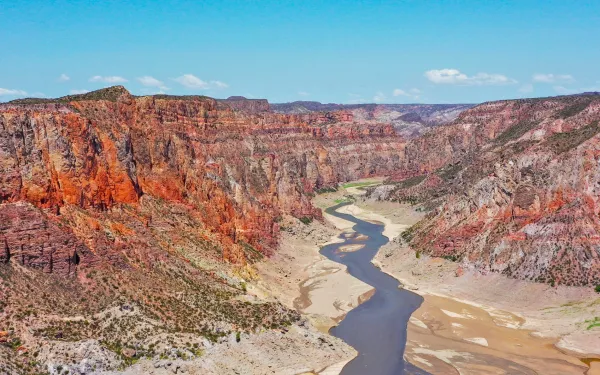
Fracking regulation in Mendoza violates Argentina's climate commitments
AIDA filed a legal brief before the Supreme Court of Mendoza arguing the unconstitutionality of a decree allowing for unconventional oil and gas drilling through hydraulic fracturing in the Argentine province. Mendoza, Argentina. In support of a lawsuit filed by Argentine ally OIKOS, the Interamerican Association for Environmental Defense (AIDA) filed a “friend of the court” brief claiming the unconstitutionality of local regulations allowing for the exploration and exploitation of unconventional hydrocarbons, known as fracking. Using arguments based on international law, the brief outlines how Mendoza’s Decree 248 violates Argentina’s climate commitments and disregards the precautionary principle. "As a party to the United Nations Framework Convention on Climate Change and a signatory of the Paris Agreement, the Argentine State has assumed international obligations to reduce greenhouse gas emissions and mitigate the climate crisis," explained AIDA attorney Claudia Velarde. "Betting on fracking implies an increase in those emissions and non-compliance with the nation’s climate commitments.” Several studies of fracking in the United States have posited that leakage and flaring during fracking operations are associated with a significant increase of methane in the atmosphere. Though less notorious than carbon dioxide, methane emissions are responsible for around 25 percent of global warming. Decree 248 fails to contemplate any provision to control greenhouse gas emissions generated by fracking or limit their climate impacts. “There are not sufficient grounds for the government of Mendoza to claim they can effectively regulate fracking,” Velarde said. "It’s clear that this regulation is insufficient, and that it ignores the precautionary principle.” The precautionary principle establishes that, when there is danger of serious or irreversible damage, the lack of absolute scientific certainty should not prevent the adoption of effective measures to prevent environmental degradation. In fracking, being an unconventional technique with a high degree of technical and scientific difficulty, there is no certainty about its impacts, which merits the application of the precautionary principle. The brief also documents the applicability of this argument based on similar cases in other countries of Latin America. Colombia currently has a moratorium on fracking based on this legal principle. "In recent decades, the development of fracking has raised alarms worldwide due to evidence of serious and irreversible damages to the environment and public health, both of which are aggravated by the climate crisis," Velarde added. AIDA’s brief joins others filed by national and international organizations against the decree regulating fracking in Mendoza, including Xumek, FARN (Environment and Natural Resource Foundation) and Earthjustice. Press contact: Victor Quintanilla (Mexico), [email protected], +5215570522107.
Read more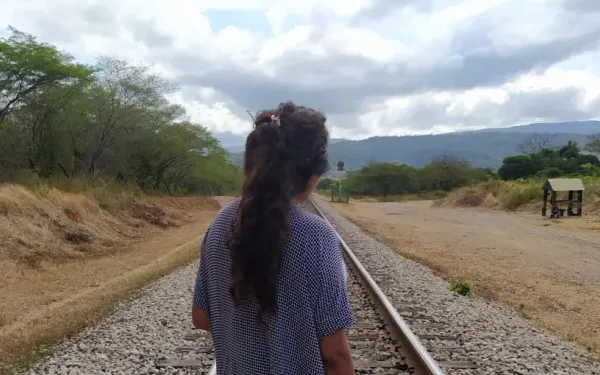
OECD to investigate human rights abuses filed against the owners of Cerrejón coal mine; BHP, Anglo American and Glencore
Parallel complaints also filed in Ireland against state owned-company for purchasing coal and Dublin-based sales wing of mining enterprise. Multiple National Contact Points (NCPs) of the Organisation for Economic Co-operation and Development (OECD) will begin the process of investigating three international mining giants (BHP, Anglo American and Glencore) and Ireland’s state-owned energy provider, the ESB, over serious human rights abuses and devastating environmental pollution at the Cerrejón coal mine in Colombia. Parallel complaints were filed simultaneously in Australia, Ireland, Switzerland and the UK by the Global Legal Action Network (GLAN) with the support of international development agency Christian Aid Ireland as well as Colombian and international human rights and environmental NGOs - CINEP, CAJAR, AIDA, ABColombia and ASK. If successful, the three companies which jointly own the Cerrejón mine will have to take steps to comply with the OECD Guidelines for Multinational Enterprises, including progressively closing down the mine in full and environmental restoration. The complaints against the mining giants also call for the full compensation of communities for the harms they have suffered. The complaints outline how the Cerrejón mine, one of the largest open-pit mines in the world, is linked to the forced displacement of indigenous and Afro-Colombian communities and the widespread, persistent and extreme pollution of the air and water in the vicinity of the mine. High concentrations of harmful metals, which can cause diseases such as cancer, were found by Colombia’s Constitutional Court to exist in the blood of those living nearby. The complaints point to Cerrejón’s failure to comply with multiple Colombian court judgments against it. In September, several prominent UN human rights experts called for some of the mine’s operations to be suspended following a request to intervene by Wayuu indigenous people. The complaints allege that the parent companies of the Cerrejón mine, as its joint owners, are responsible under the OECD Guidelines for Multinational Enterprises for the harms caused by its operations. Separate complaints have also been lodged against Dublin-based Coal Marketing Company (CMC), which is the exclusive marketer of coal from the Colombian mine, as well as Ireland’s Electricity Supply Board (ESB), which has been a major purchaser of the mine’s coal. In 2019, the UN Committee on the Elimination of Racial Discrimination recommended that Ireland “consider stopping purchasing coal from the Cerrejón mine”. All five complaints have been lodged with the relevant National Contact Points for the OECD, which are tasked with ensuring that companies comply with the OECD Guidelines for Multinational Enterprises. Director of GLAN Dr Gearóid Ó Cuinn said: “These parallel complaints in four different countries point to a systematic failure to respect basic human rights standards from the extraction, to the marketing, to the purchasing of Cerrejon coal. The long-standing abuses at the mine have been so egregious that there is no way for enterprises to respect human rights law and do business with Cerrejón.” Sorley McCaughey of Christian Aid Ireland said: “We see the impact that corporate human rights abuses are having in every corner of the world and the Cerrejón case underscores the inadequacy of voluntary guidelines for multinational companies. Governments globally, including the UK and Ireland, must introduce mandatory human rights and environmental due diligence legislation for companies to ensure they do not undermine the human rights of workers or the communities in which they work.” Rosa María Mateus Parra, lawyer with CAJAR, a Colombian human rights organisation and signatory to the complaints, said: “This is a striking example of the role played by large multinational companies in fuelling injustice. The people of La Guajira have borne the huge social and environmental costs of the mine, while harmful fossil fuel coal is exported around the world in the midst of the climate crisis and a small number of companies record huge profits.” Notes for editors If upheld the complaints filed in Australia, Switzerland and the UK would require joint-owners BHP, Glencore and Anglo American to close down the Cerrejón mine and compensate the affected communities for the harms it has caused. If upheld the separate complaint in Ireland against Dublin-based CMC would require it to stop selling Cerrejón coal. The complaint was submitted by Global Legal Action Network (GLAN), supported by Christian Aid Ireland, the Centro de Investigación y Educación Popular (CINEP), the Colectivo de Abogados ‘José Alvear Restrepo’ (CAJAR), Interamerican Association for Environmental Defense (AIDA), ABColombia and ASK - Arbeitsgruppe Schweiz Kolumbien. The Global Legal Action Network (GLAN) is a non-profit organisation that works to pursue innovative legal actions across borders to challenge powerful actors involved in human rights violations and systemic injustice by working with affected communities. GLAN has offices in the UK (London) and Ireland (Galway) | @glan_law | www.glanlaw.org. press contacts: Victor Quintanilla (México), AIDA, [email protected], +5215570522107 Dr Gearóid Ó Cuinn (Director), GLAN, [email protected], +447521203427
Read more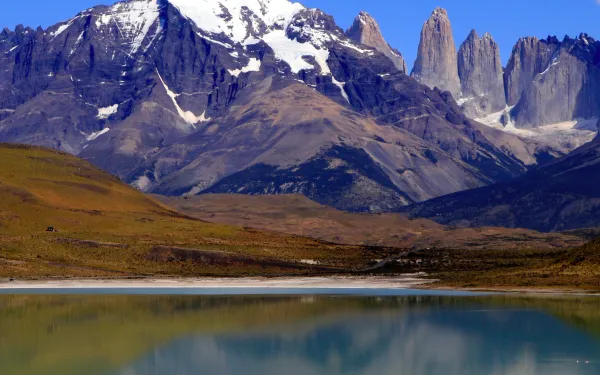
Chile fails to advance towards adequate oversight of the salmon industry
An administrative summary carried out by Sernapesca investigating serious irregularities in salmon farming concessions ended up absolving the officials involved of all charges, without valid arguments. The results of the audits of Chile’s Subsecretariat of Fishing and Aquaculture (Subpesca) and the National Service of Fishing and Aquaculture (Sernapesca), carried out in 2016 by the Comptroller General's Office, showed serious irregularities in salmon farming concessions. This led to Sernapesca undertaking an internal administrative investigation to establish the facts and assign responsibility for those irregularities. However, the officials who were the subject of the investigation were absolved of all charges without sufficient evidence. The audits identified that a significant number of the concessions were operating in anaerobic conditions (generating a lack or absence of oxygen). They also found that concession holders (at least 100) took samples at alternate sites so as to demonstrate the presence of aerobic conditions. Thirty-one percent of the centers reviewed had operated outside of their authorized concession area. Also, Sernapesca did not confirm that the concessions had not expired for failing to starting operations one full year after their material delivery. Despite the seriousness of the fact that a significant percentage of the concessions are creating anaerobic conditions—under which marine life cannot survive—the investigation did not address this reality. Without any justification, the officials called to answer for this lack of oversight simply refused to accept any responsibility. To mention just a few examples: they excused displaced concessions citing a tolerance range for displacement that contradicts the law, lacks scientific basis, and is often violated; they excused themselves from taking samples at different sites on the grounds that the concessions were displaced; and, to explain the lack of declarations for expired concessions, they argued that there are no legal or regulatory provisions that order Sernapesca to officially confirm the expiration of a concession. Such statements cannot be used as an excuse to allow companies to continue maintaining their concessions when they have legally expired. Based on the process described, the Interamerican Association for Environmental Defense (AIDA), the NGO FIMA, and Greenpeace Chile consider that, despite the declared intent of the authorities, there are still serious problems with the control and government oversight of salmon farming in Chile, and the adequate curbing of its expansion. The generation of anaerobic conditions, which are occurring in many of the salmon farming concessions, is a very serious and often irreversible environmental problem. Places without oxygen quickly become true underwater deserts where life cannot thrive. Awareness of this problem, however, is not common because it occurs underwater, where it cannot be seen. The agencies in charge of regulating and overseeing the industry have a fundamental job to carry out. The Comptroller's Office took an important step by carrying out audits of Subpesca and Sernapesca. Now we need the agencies to confront the weaknesses that have been revealed and to rise to the very important task of monitoring and sanctioning the industry. We urge the Comptroller General's Office to adequately follow up on the 2016 audits. It is clear that the control of the industry, as well as the imposition of sanctions when appropriate, is not working as it should and the seas of southern Chile cannot continue to be unprotected. It is urgent to move towards stopping the expansion of an industry that has proven to be incompatible with the health of marine ecosystems, and to implement the appropriate sanctions, derived from the expiration of concessions and environmental permits for those farms causing grave environmental impacts. press contact: Victor Quintanilla (Mexico), AIDA, [email protected], +5215570522107
Read more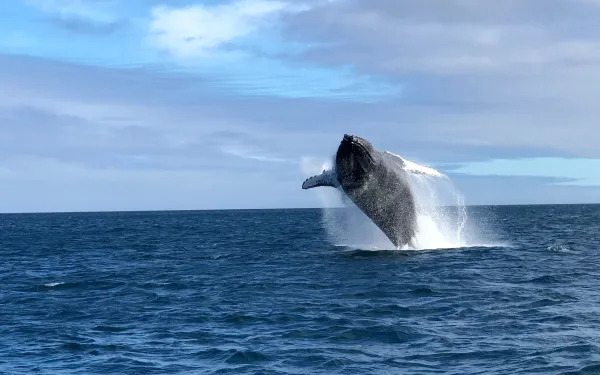
International alert issued on threats of uncontrolled fishing near Galapagos
The Interamerican Association for Environmental Defense (AIDA) and the Ecuadorian Coordinator of Organizations for the Defense of Nature and the Environment (CEDENMA) sent an international alert about the problem and threats of uncontrolled fishing on the high seas, particularly in the vicinity of the Galapagos Marine Reserve. The document calls for the adoption of preventive, urgent and effective measures to stop overfishing from causing irreversible damage to ecosystems and species in the Galapagos Islands and throughout the Tropical Eastern Pacific. The call comes after an industrial fleet of 260 fishing boats (243 flying the Chinese flag)—one of the largest in the world—was registered in July in Ecuador's Exclusive Economic Zone (EEZ), near the Galapagos Marine Reserve. The fleet included vessels from companies with records of violations of sovereign rights and the jurisdiction of coastal states, such as illegal, unreported and unregulated fishing, rule breaking and intentional environmental degradation. "The ocean is a highly connected system where what happens in one area will affect many others, so coordinated and cooperative actions between countries are key for the effective conservation of marine resources," explained Gladys Martinez, Senior Attorney with AIDA's Marine Biodiversity and Coastal Protection Program. "The role of international law is also fundamental in the sense that countries must enforce in good faith what has been agreed upon in conventions, treaties and other international instruments aimed at protecting the ocean.” The alert was sent to authorities overseeing the following international treaties and organizations: the United Nations Convention on the Law of the Sea (UNCLOS), the Convention on Biological Diversity (CBD), the Convention on International Trade in Endangered Species of Wild Fauna and Flora, and the Convention on the Conservation of Migratory Species of Wild Animals, the World Trade Organization, the Permanent Commission for the South Pacific (CPPS), the Eastern Tropical Pacific Marine Corridor (ETPMC) and the United Nations Educational, Scientific and Cultural Organization (UNESCO). Overfishing in the high seas (areas beyond national jurisdiction) can affect not only exploited areas, but also nearby marine and coastal ecosystems, as well as the food security of less developed countries. Therefore, activities such as those recorded in July represent a serious threat to the Galapagos Islands and three other World Heritage Sites—Cocos, Malpelo and Coiba in Costa Rica, Colombia and Panama, respectively—as well as to biodiversity on the high seas. "At CEDENMA we are very concerned about the situation related to industrial fishing activities in international waters that affect the fishing, biological and ecological resources of the seas under Ecuadorian jurisdiction and the Tropical Eastern Pacific region," said Gustavo Redín, President of CEDENMA. "We therefore urge Ecuadorian authorities to act on this issue and defend this natural heritage, which is unique in the world." The alert details the ecological, economic and social importance of the Galapagos; the current fishing situation inside and outside of the Marine Reserve; the impacts that overfishing on the high seas has on local fauna; the international obligations that countries have to protect the ocean and its resources; and the regional mechanisms for coordination between countries on marine conservation. Finally, AIDA and CEDENMA request a series of measures from the international organizations and authorities in charge of treaty compliance, including that they: Urgently investigate the facts set out in the document. Urge the Government of China and other governments with vessels present in the vicinity of Ecuador's EEZ to comply with their obligations to protect highly migratory species. Urge the Ecuadorian State to improve its monitoring efforts to effectively protect valuable natural resources. Review China's fishing subsidies, which are encouraging overfishing on the high seas. Continue negotiations within the framework of the Convention on Biological Diversity so that State Parties commit to protecting 30 percent of the ocean by 2030, including areas on the high seas and highly productive areas such as the Galapagos Islands. Urge Ecuador to continue supporting the negotiations to reach a global agreement for the conservation and sustainable use of biodiversity in areas beyond national jurisdiction (the High Seas Treaty) and to favor fishing management in that part of the ocean. Adopt coordinated, joint, and cooperative actions among the countries of the Eastern Tropical Pacific in favor of marine conservation. Strengthen the application of the rules that bind coastal states to ensure that fishing activities on the high seas are subject to standards of sustainability and the protection of marine biodiversity. Press contact: Victor Quintanilla (Mexico), AIDA, [email protected], +5215570522107
Read more
Civil society calls on the Human Rights Council to recognize the right to a #HealthyEnvironment4All
More than 850 civil society organizations, indigenous peoples’ groups, social movements and local communities are calling on the United Nations Human Rights Council to recognize the universal human right to a safe, clean, healthy and sustainable environment. The open letter, sent on September 10 and still open online for signatures, comes ahead of the Human Rights Council meeting in Geneva from September 14 to October 6. It argues that people must be protected from the deadly impacts of environmental degradation and climate change - such as the increased spread of diseases like COVID-19. “In view of the global environmental crisis that currently violates and jeopardizes the human rights of billions of people on our planet, global recognition of this right is a matter of utmost urgency,” the letter states. “As we all know, there are no human rights on a dead planet.” The right to a safe, clean, healthy and sustainable environment is already covered in constitutions and laws in a substantial majority of countries around the world, as well as regional systems. There is a growing legal system for implementing and applying the right, too. Now advocates for human rights, indigenous peoples, climate action and social justice are urging the UN Human Rights Council to formalize this recognition and make it universal. In doing so, the Human Rights Council would prompt countries to strengthen policies and legislation to take better care of nature and biodiversity, the letter says. This would lead to cleaner air, greater access to safe drinking water and lower greenhouse gas emissions. It would also provide environmental justice for communities that are exposed to degraded and dangerous environments, such as toxic air or disease. Deforestation and environmental degradation increase humans’ exposure to zoonotic viruses, like COVID-19, and vector-borne diseases, like malaria and Dengue fever. Scientists warn that the risk of spreading diseases will grow as natural ecosystems continue to break down. New research also suggests that the effects of air pollution on lungs, hearts and general health makes people more susceptible to the worst impacts of COVID-19. To protect people around the world from future shocks, and build greater resilience to catastrophes like this pandemic, the letter urges states to “recognize, respect, protect and fulfil the human right of all to enjoy a safe, clean, healthy and sustainable environment”. #HealthyEnvironment4All Press contact Victor Quintanilla (Mexico), AIDA, [email protected], +5215570522107
Read more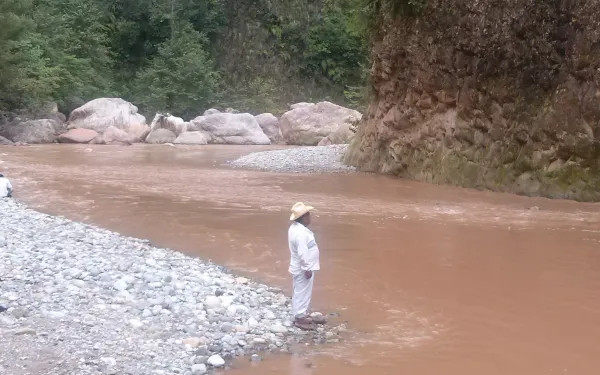
Mexico’s Federal Mining Law threatens human rights of indigenous peoples
International civil society organizations submitted amicus curiae briefs to the Mexican Supreme Court in support of the State of Puebla-based Masewal people’s constitutional action.Groups also delivered to the Court’s Second Chamber more than 4,000 signatures supporting the defense of indigenous people’s rights, collected through www.change.org.mx International civil society organizations are supporting a lawsuit filed by the Masewal indigenous people of Cuetzalan del Progreso, based in the Sierra Norte of the Mexican state of Puebla, against Mexico’s Mining Law. The Masewal request that the Supreme Court of Justice of the Nation (SCJN) declare the law unconstitutional because it violates indigenous peoples’ fundamental rights. Earthjustice, the Environmental Defender Law Center (EDLC) and the Interamerican Association for Environmental Defense (AIDA) filed separate amicus curiae (“friend of the court”) briefs to provide information in order to help the SCJN rule on litigation initiated by the Altepetajpianij Maseual Council and the Mexican Center for Environmental Law (CEMDA). The constitutional suit, originally filed in March 2015, argues that Mexico adopted the new Mining Law in violation of indigenous rights by not previously consulting or informing indigenous peoples before passing the law. As a result, the law failed to take into account indigenous values or perspectives and contained no mechanism to protect their human rights, even though many mining concessions already affect their territories. Above all, this law violates indigenous peoples’ rights to self-determination by excluding them from decision-making on mining within their territories, thus threatening local communities’ quality of life. “As the First Peoples, we are convinced that, in order to have a good life –Yeknemilis, as we say in Nahuatl– it is necessary that we be well and have social peace. And we cannot be well, nor can we build social peace in our territories, when extractive projects such as destructive mining threaten our way of life,” the Masewal people told SCJN justices in their brief. “Our contribution presented in our amicus brief highlights that Mexico’s international obligations require free, prior, and informed consultations with indigenous peoples before approving any legislative measure that affects them, especially when it comes to their territorial rights,” said Guillermo Zúñiga, Earthjustice international attorney. “This also includes laws on the extraction of natural resources found in their territories, which applies directly to the case of the Mining Law.” “Mining concessions cannot be granted solely based on mining legislation. A higher-level legal framework, based on human rights and environmental law, and on the interrelation between the two issues, is must be applied in this case. This broader, legal framework determines and limits the granting of mining titles in the case of lands and territories,” says EDLC in its amicus’ conclusions. "Mexico’s Supreme Court of Justice of the Nation has the opportunity to set an exemplary precedent for the region with respect to the protection of indigenous rights," said attorney Carlos Lozano Acosta of AIDA. "In turn, the SCJN can learn from regional experience, adopting the relevant standards that courts in other countries have provided in favor of indigenous peoples, as evidenced in our amicus brief." Letters of support from other indigenous groups in Mexico, Colombia, Brazil, Bolivia, and Guatemala, as well as 4,091 signatures collected through the platform change.org.mx as of June 26, were sent to the Ministers of the SCJN’s Second Chamber supporting the Masewal People's suit. press contacts Ricardo Ruiz (Mexico), CEMDA, 5559644162, [email protected] Victor Quintanilla (Mexico), AIDA, 5570522107, [email protected] Robert Valencia (US), Earthjustice, [email protected]
Read more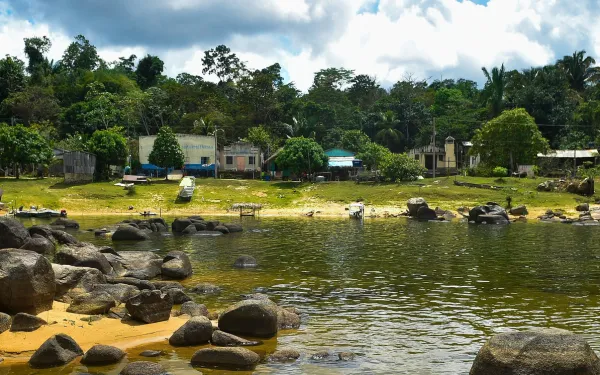
Belo Sun project puts Amazon at serious risk of contamination
The Canadian company developing Belo Sun is failing to take sufficient measures to prevent a planned gold mine from contaminating groundwater and surface water sources. The company also plans to use large quantities of cyanide, a substance highly dangerous to the health of people and ecosystems. Altamira, Brazil. A technical evaluation concluded that a gold mine planned for the Volta Grande of the Xingu River, deep in the Brazilian Amazon, risks contaminating water sources and harming the area’s indigenous and riverine communities. A project of the Canadian company Belo Sun Mining Corp., the mine could leech contaminating fluids, and would employ high quantities of cyanide, as well as other chemical processes that could, unless properly implemented, cause acidic waste to reach aquifers and rivers. The analysis prepared by Andrés Ángel, geologist and scientific advisor to the Interamerican Association for Environmental Defense (AIDA), found inconsistencies in the information the company has published in the environmental licensing process. In the 2015 feasibility report presented to the project's investors, Ángel found that the company stated that the area’s soil and shallow rocks are impermeable, that is, contaminants cannot seep through them. However, in 2012 and 2016 environmental impact studies, Belo Sun shows the regulatory authorities data, descriptions and analyses that contradict what was said in 2015, going so far as to say that the aforementioned soils and rocks behave like porous or fractured aquifers. In recent studies, the general design of the project and the management measures proposed by the company, which do not even include installing liners to prevent leaching under certain structures, are insufficient to reduce the risk of surface and groundwater contamination, the expert explained. The evaluation also warns of the use of large quantities of cyanide as the method of choice for the separation of gold. It’s expected that between 330 and 390 grams per ton of processed material will be used, out of an estimated total of 116 million tons of ore. "Less polluting and dangerous alternatives exist, including the export of polymetallic concentrates where the separation of material of economic interest occurs later. In the Amazon rainforest, it would be essential to consider this option" says Ángel. The report also highlights that cyanide can be lethal even in very low doses for both aquatic fauna and people, and points out the risks of transporting this substance through low quality road and fluvial infrastructure. Another serious risk highlighted by the study is the generation of acid drainage as a result of the chemical process planned by the company to eliminate the cyanide used, and as a cumulative impact after the project's lifetime, taking into account that some units were classified as having moderate acid generation potential. Although an active treatment (the addition of lime to effluents) is proposed for this purpose, such a measure implies greater demand for reagents and, therefore, greater total environmental impacts. Finally, Ángel highlighted the lack of information on the synergistic impacts between the Belo Monte Dam—which already affects the area—and the downstream mining project in the reduced flow section of the Xingu River, which in turn will determine the type and extent of the mine's risks in the event of serious failures. The Brazilian justice system suspended Belo Sun’s installation license in 2017 because the company did not conduct studies on the mine's impact on indigenous communities or comply with the requirement for a free, prior and informed consultation process. Belo Sun submitted the studies of the indigenous component to the National Indian Foundation (FUNAI) in early 2020 and is awaiting an assessment and response from the entity. Ángel's assessment was presented to FUNAI and the Secretary of State for the Environment (SEMAS) of Pará, the entities responsible for granting licenses for the project. The expert opinion joins two others presented as part of a joint effort by independent researchers whose work explicitly demonstrates the unfeasibility of the Belo Sun project as it is currently conceived. The previous opinions focused on the negative impacts of the project on the ichthyofauna, and on the fragility of the environmental impact studies submitted by Belo Sun from a geological point of view. In addition to the independent researchers, several organizations have denounced the social and environmental unfeasibility of the project, including the Xingu+ Network, the Xingu Alive Forever Movement, Amazon Watch, the Socio-Environmental Institute (ISA), International Rivers, Above Ground and AIDA. Contacts Marina Terra (Brazil), ISA, [email protected] Victor Quintanilla (Mexico), AIDA, [email protected], +5215570522107
Read more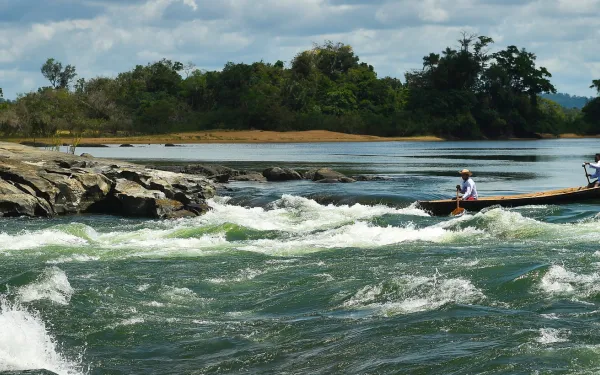
Expert report: proposed gold mine in Brazilian Amazon presents unacceptable risk
Altamira, Brazil. An expert study released today reveals serious deficiencies in the environmental impact assessment submitted to Brazilian authorities by Canadian mining company Belo Sun. The analysis exposes an unacceptable degree of risk that the tailings dam at the proposed Volta Grande gold mine will fail, contaminating the Xingu River and harming nearby indigenous and other communities. The report’s author, Dr. Steven Emerman, explains that despite the presence of geological faults at the mine site, the company has not produced any seismicity studies. Nor has the dam been designed with seismic safety in mind, in violation of Brazilian tailings dam regulations. Dr. Emerman also raises concern about the company’s use of its tailings reservoir to capture water. Industry best practice is to prevent the flow of surface runoff into tailings ponds in order to minimize the risk of dam failure. Moreover, the report reveals that Belo Sun has provided contradictory information regarding its tailings storage plan to investors and Brazilian regulatory authorities. Dr. Emerman recommends that the project’s licence be revoked. Brazilian courts suspended Belo Sun’s installation licence in 2017 because the company failed to study the project’s impact on indigenous and other traditional communities, or to consult these populations. Belo Sun has been criticized for publishing misleading statements to bolster sagging interest in the project among potential investors, amidst growing evidence of social, environmental, financial and reputational risks. Last week local movements Rede Xingu+ and Xingo Vivo para Sempre submitted Dr. Emerman’s report to government agencies responsible for project licensing. These organizations demand that additional studies be undertaken, which they argue are “indispensable to assess the social and environmental viability of Belo Sun’s mining project considering the grave risk to indigenous and other river-dwelling communities located next to the project and its tailings dam.” FAILURES, INSECURITY AND CONFLICTING INFORMATION From conflicting information to the absence of seismic safety criteria, Dr. Emerman's opinion highlights eight main points that support the recommendation to reject the Volta Grande project: The tailings dam was not designed under any seismic safety criteria, violating Brazilian regulations in this regard. Any tailings dam should be designed to withstand events such as floods and earthquakes. Contrary to the Brazilian standard, the company did not include in its studies an analysis of local seismicity nor did it simulate the response of the structure to a hypothetical seismic acceleration. Although geological faults have been mapped at the tailings dam site, no local seismicity studies have been done, which also violates Brazilian tailings dam regulations. Seismic activity is responsible for causing the dissolution of saturated debris into water, one of the most common causes of tailings dam failures. In Brazil, in 2019 alone, there were three dam failures, including the rupture of the Vale dam in Brumadinho (Minas Gerais), which caused at least 250 deaths. Cases like these demonstrate the need for and importance of local seismicity studies and are indispensable for the proper assessment of the risk of failure of a tailings dam. No risk analysis has been made of the geological faults mapped in the vicinity of the project site. Three of these faults, which are structures present in rocks and which can promote seismic movements, intersect at the exact site of the proposed tailings dam. The official simulation of the rupture assumes, without justification, that the flow of the waste would be interrupted when it reaches the Xingu River, ignoring the capacity of the toxic elements to travel tens of kilometers along the Volta Grande. The conclusions of the EIA also support the hypothesis that the tailings flow would take 97 minutes to reach the Xingu, but without mentioning the details of the calculation used. According to the modelling presented in the opinion, considering the volume of tailings stored on the order of 35 million cubic metres and assuming a spill of approximately 25%, under a conservative scenario the flood would cover an initial distance of up to 41 kilometres along the river. At a speed of 20 km/h, the flooding of Belo Sun's dam would reach the Xingu in only seven minutes, covering the distance of 41 km in only two hours, reaching the Volta Grande Indigenous Land. After the rupture of the Vale Dam in Brumadinho, the tailings flow reached 120 km/hr, 100 km/hr more than the more conservative scenario proposed in the report. In the worst case, with the release of 100% of the stored tailings, the initial flow would cover 98 kilometers along the Xingu River and could reach the Amazon River and the Atlantic Ocean. There is a high risk of toxic water spillage into the Xingu. The project provides for the recycling of cyanide leachate, a substance used to separate gold, which can result in waste water that is highly enriched with toxic elements such as arsenic and mercury. The result, whose analysis is absent from official documents, could be the spillage of a waste-water mixture that is highly toxic to aquatic organisms into the Xingu River in the event of a dam failure or spill. There is no plan in the EIA to close the mine or tailings dam, a key issue for the social and environmental viability of the mining project. The document contains a promise by the business group to find out, after the event, how to permanently stabilize the tailings dam. The waste storage system adopted at the time is not viable and runs counter to good mining practice. Part of the solution to reduce the probability of tailings dam failure is to reduce the water content in the tailings tank. But the Belo Sun project envisages that all the waste will be saturated and under seven metres of free water, above the surface of the solid waste. Aware of the issue raised in the previous point, the company seems to have decided that the current plan to flood the waste is not feasible. The Chief Executive Officer of Belo Sun Mining stated o MiningWatch Canada that he would abandon the current plan for a filtered tailings storage facility, which should have a significantly lower water content. However, the company provided conflicting information to Brazilian organizations and regulatory authorities: in a presentation to FUNAI in October 2019, the company described the same wet waste storage plan as the EIA. "The provision of contradictory information to different audiences by Belo Sun Mining and its Brazilian subsidiary is very serious in terms of the reliability of the information provided in the administrative processes," the opinion reiterates. Rede Xingu+ is an articulation of indigenous, riverine and partner organizations that work in the Xingu River basin. Movimento Xingu Vivo para Sempre is a collective formed in 2008 by local, national and international civil society organizations; threatened indigenous and non-indigenous communities; and social, human rights and environmental movements that oppose the construction of hydroelectric dams on the Xingu River and that fight in defence of the rights of local people. Contacts Dr. Steven Emerman, Malach Consulting, +1-801-921-1228 (Utah, USA) Brent Milikan, Amazon Program Director, International Rivers, +55-61-98153-7009 (Brasilia, Brazil). Mr. Milikan can connect journalists to representatives of Rede Xingu+ and Movimento Xingu Vivo para Sempre. Karyn Keenan, Director, Above Ground, +1-613-791-7532 (Ottawa, Canada)
Read more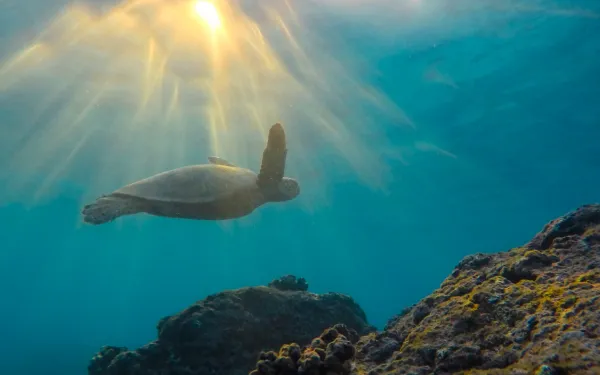
ON WORLD OCEAN DAY: An open letter
If we have learned anything from the Covid-19 pandemic it is that we are all inextricably connected with each other and the natural world. Without greater balance and cooperation we cannot survive as a species. Human wellbeing is at the heart of what we do. Our work, to protect the ocean is driven by the reality that humankind needs a healthy planet that can sustain life, for the sake of our homes, health, livelihoods and food. Many have taken the rupture to our lives caused by Covid-19 to think about this and about how we can rebuild better, learning from the pandemic to achieve a greater balance and to protect the fundamentals which make life on Earth possible. Doing so is a necessity. We do not have the luxury of choosing between paths which damage the natural world and those which do not. If we continue to harm nature at the rate we have been, our world will not be able to sustain human wellbeing – from jobs to food security and health. We have been given a stark warning. Once we emerge and start to rebuild, we need to do so in a way that protects the fundamentals that all human beings rely upon, foremost among these being a planet capable of sustaining human life. Governments will be put under pressure to drop environmental protections to make it easier for industry to operate; to privilege short term economics and job increases over other considerations. These will be presented as a choice – choose humans over nature - but it is not a real choice. For the good of humankind, we must achieve balance with the natural world, a coexistence which ultimately enables us to thrive. If we do not achieve that balance, take action to do better now, the rupture in our lives will get bigger, we will face other, escalating global disasters. We ask governments to protect human wellbeing and to make decisions which keep a functioning blue planet beneath our feet. Deep Sea Conservation Coalition Ecology Action Centre Global Fishing Watch Global Ocean Trust Greenovation Hub High Seas Alliance Interamerican Association for Environmental Defense International Programme on the State of the Ocean Marine CoLABoration Marine Conservation Institute Marine Conservation Society Oceans North Our Fish Seas at Risk Shark Project International Turkish Marine Research Foundation One Ocean
Read more